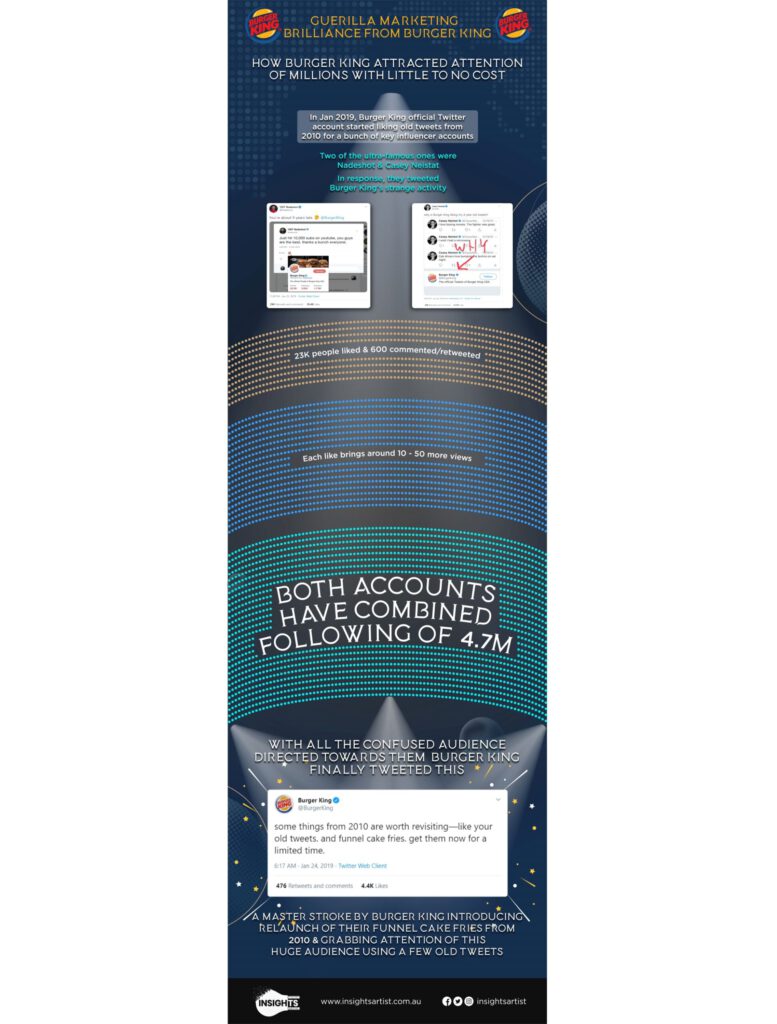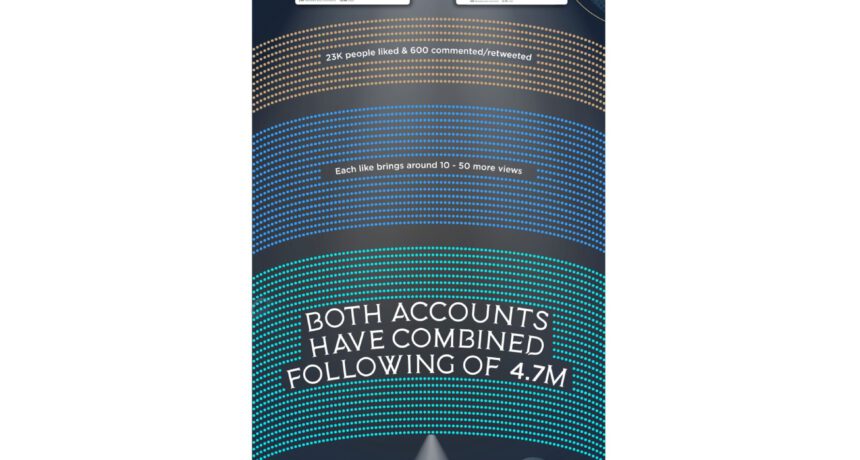
Influencer Marketing, But with No Cost!
In 2019, Burger King successfully made its product trending on social media by using influencers efficiently. Using social media to advertise products sounds familiar, but Burger King did it with little to no cost.
Many companies pay influencers to promote their products. How much does it cost? Well, it depends on which platform and how many followers does the influencer have. A recent report shows that Facebook influencers charge an average of $25 per post, per 1000 followers. Instagram influencers charge an average price of $10 a post, per 1000 followers. Twitter offers the lowest among them, at $2 per post, per 1000 followers. However, Burger King created buzz without spending too much on influencers, by ‘teasing’ influencers.
Burger King’s Mysterious Behaviour – ‘Why?’ Can Draw Attention
Burger King’s official Twitter account started liking Twitter influencers’ posts. Not posts from the day, but old posts from 2010. Then, the influencers started reacting to this mysterious behaviour, tweeting, “Why is Burger King liking my tweets from 2010?”
- “You’re about 9 years late. 🤔 @BurgerKing” – 100T Nadeshot
- “why is Burger King liking my 8 year old tweets?” – Casey Neistat
Burger King’s liking bombs targeted tweets from 2010. The influencers and their followers soon started paying attention to Burger King, gathering many more likes, retweets, and conversations. Then, Burger King revealed:
- “some things from 2010 are worth revisiting—like your old tweets. and funnel cake fries. get them now for a limited time.” – Burger King
It was a simple reveal – all the strange liking bombs were just to announce the coming back of Funnel Cake Fries, that they had introduced in 2010.
The tweet hit 4.4K likes. To say the least, this was one of the successful guerrilla marketing strategies. Without paying to Influencers, Burger King had had them mention their brand names.
Were Influencers Just Exploited?
The story hadn’t ended yet. One of the influencers, Casey Neistat hit back and posted a video titled “EXPLOITED BY BURGER KING.” He joked in the video, “We’re people of average intelligence. And because of that, it’s not nice to manipulate us into hawking your sugar-coated French fries.” He suggested that Burger King could donate money to “one of these great organisations that looks after kids who have needs.”
What happened then? Burger King quickly responded to his suggestions, following him on Twitter.
- sup @CaseyNeistat, we’re ready to meet your “suggestions.” slide into our DMs real quick. – Burger King
Think about it. Burger Kind didn’t even ask influencers to promote their products. To be precise, Burger Kind didn’t owe them anything. Even though Burger King “found” influencers and liked their old posts, it was the influencers who reacted without being asked. However, Burger King listened to Neistat’s “suggestions.” After directly reaching out to him, Burger King donated $25,000 to “Make-A-Wish Foundation” and “The Boys & Girls Clubs of America.” They also offered 5,000 free meals to Neistat’s loyal fans.
What Can We Learn from This Marketing Campaign?
A lot of companies use social media to promote their products or brands. Apparently, not everything turns out to be successful. In fact, social media posts could get flamed easily and could even harm the brand image. Burger King, however, had a great wit in this campaign. They took a strange action to get attention. However, they responded promptly with socially responsible deeds, which must have played a great role in promoting not only their dessert menu, but also the brand image overall.

